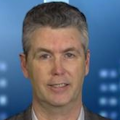Huawei CFO Meng back in China after deal with U.S. DoJ
Huawei CFO (and daughter of Huawei founder Ren Zhengfei) Meng Wanzhou has flown home to China from Canada and will not be extradited to the U.S. to face fraud charges. Meng appeared in a Brooklyn, NY, federal court on Friday, September 24, and was arraigned on charges of conspiracy to commit bank fraud and conspiracy to commit wire fraud, bank fraud, and wire fraud. The judge accepted a deferred prosecution agreement (DPA) Meng had reached with the U.S. Department of Justice (DoJ) and the DoJ suspended the extradition request.
As part of the DPA, Meng agreed to the accuracy of a four-page “statement of facts” that describes what the DoJ labeled “knowingly false statements” that Meng made to “Financial Institution 1” (thought to be HSBC). To avoid further prosecution on these charges, Meng must avoid commit other federal, state, or local crimes.
The charges revolve around sales of computer equipment Huawei is alleged to have attempted in Iran through a subsidiary/shell company in defiance of Department of Commerce restrictions (see, for example, “U.S. seeks to charge Huawei CFO with bank fraud”). Meng was charged with lying to HSBC in 2013 about the relationship between her company and the shell company, Skycom Tech. Co. Ltd., after Reuters reported the alleged attempted sales activities and the relationship between Huawei and Skycom; Reuters offered further details of the alleged activities in 2019 (see "Reuters alleges additional links between Huawei, Middle East companies at heart of CFO allegations") .
While the DPA suspends DoJ actions against Meng, the U.S. still plans to prosecute Huawei in connection with the attempted computer sales (see "Justice Department files new Huawei charges").
“In entering into the deferred prosecution agreement, Meng has taken responsibility for her principal role in perpetrating a scheme to defraud a global financial institution,” said Acting U.S. Attorney Nicole Boeckmann for the Eastern District of New York. “Her admissions in the statement of facts confirm that, while acting as the chief financial officer for Huawei, Meng made multiple material misrepresentations to a senior executive of a financial institution regarding Huawei’s business operations in Iran in an effort to preserve Huawei’s banking relationship with the financial institution. The truth about Huawei’s business in Iran, which Meng concealed, would have been important to the financial institution’s decision to continue its banking relationship with Huawei. Meng’s admissions confirm the crux of the government’s allegations in the prosecution of this financial fraud — that Meng and her fellow Huawei employees engaged in a concerted effort to deceive global financial institutions, the U.S. government, and the public about Huawei’s activities in Iran.”
Political fallout
Meng’s arrest in Vancouver, BC, in 2018 and the subsequent extradition hearings heightened tensions between the U.S. and China as well as strained relations with Canada. After Meng’s arrest, China arrested two Canadian citizens on espionage charges, convicting one. Both Canadian citizens were released from Chinese custody shortly after Meng departed Canada, although China had denied their cases were tied to Meng’s.
China had consistently insisted on Meng’s innocence while charging her arrest was politically motivated, particularly after then President Donald Trump signaled he’d be willing to intervene under the right conditions (see “Huawei CFO granted bail; Trump considers intervention”). “The Chinese side's position on the Meng Wanzhou incident has been consistent and clear-cut. It has long been a fully proven fact that this is an incident of political persecution against a Chinese citizen, an act designed to hobble Chinese high-tech companies,” said Foreign Ministry Spokesperson Hua Chunying via a prepared statement issued September 25. “The so-called ‘fraud’ charges against Ms. Meng Wanzhou are purely fabricated. Even HSBC, the so-called ‘victim portrayed by the US side, has disclosed materials that are sufficient to prove Ms. Meng's innocence. What the United States and Canada have done is a typical case of arbitrary detention.”
For related articles, visit the Business Topic Center.
For more information on high-speed transmission systems and suppliers, visit the Lightwave Buyer’s Guide.
To stay abreast of fiber network deployments, subscribe to Lightwave’s Service Providers and Datacom/Data Center newsletters.
About the Author

Stephen Hardy
Editorial Director and Associate Publisher, Lightwave
Stephen Hardy is editorial director and associate publisher of Lightwave and Broadband Technology Report, part of the Lighting & Technology Group at Endeavor Business Media. Stephen is responsible for establishing and executing editorial strategy across the both brands’ websites, email newsletters, events, and other information products. He has covered the fiber-optics space for more than 20 years, and communications and technology for more than 35 years. During his tenure, Lightwave has received awards from Folio: and the American Society of Business Press Editors (ASBPE) for editorial excellence. Prior to joining Lightwave in 1997, Stephen worked for Telecommunications magazine and the Journal of Electronic Defense.
Stephen has moderated panels at numerous events, including the Optica Executive Forum, ECOC, and SCTE Cable-Tec Expo. He also is program director for the Lightwave Innovation Reviews and the Diamond Technology Reviews.
He has written numerous articles in all aspects of optical communications and fiber-optic networks, including fiber to the home (FTTH), PON, optical components, DWDM, fiber cables, packet optical transport, optical transceivers, lasers, fiber optic testing, and more.
You can connect with Stephen on LinkedIn as well as Twitter.
